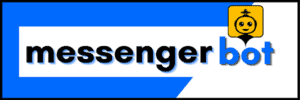Welcome to our comprehensive guide on Chatfuel pricing, where we delve into the costs, benefits, and comparisons of this powerful chatbot platform. If you’re considering leveraging Chatfuel for your business, understanding its pricing structure is crucial. In this article, we will explore how much Chatfuel costs per month, break down the various pricing plans, and discuss whether there is a free option available. Additionally, we will examine the common drawbacks of using Chatfuel, compare it with its competitor ManyChat, and provide insights into the pricing of ChatGPT 4 for a broader perspective. We will also guide you through the cancellation process of your Chatfuel subscription and highlight some popular alternatives in the market. By the end of this guide, you will have a clear understanding of Chatfuel pricing and how it fits into your business strategy, enabling you to make an informed decision.
How much does Chatfuel cost?
Chatfuel offers a tiered pricing structure designed to accommodate various business needs. Understanding Chatfuel pricing is essential for businesses looking to leverage AI-driven chatbots for enhanced customer engagement. Here’s a breakdown of the costs associated with Chatfuel:
Understanding Chatfuel pricing per month
- Free Plan: Ideal for individuals or small businesses, this plan allows users to create a basic chatbot with limited features. Users can engage with up to 50 users per month without any cost.
- Pro Plan: Priced at approximately $15 per month, this plan is suitable for growing businesses. It includes advanced features such as unlimited users, integrations with third-party services, and access to analytics tools.
- Premium Plan: For larger enterprises, Chatfuel offers a custom pricing model that provides tailored solutions, including dedicated support, advanced automation features, and enhanced security options. Pricing varies based on specific business requirements.
- Add-Ons: Chatfuel also offers additional features such as custom branding and priority support for an extra fee, allowing users to enhance their chatbot’s functionality further.
For more detailed information on pricing and features, you can visit Chatfuel’s official website or consult their customer support for personalized assistance. According to recent user reviews and industry comparisons, Chatfuel is often praised for its user-friendly interface and robust capabilities, making it a competitive choice among chatbot platforms.
Breakdown of Chatfuel pricing plans
When evaluating Chatfuel pricing, it’s important to consider the specific features included in each plan. The Pro Plan is particularly popular among small to medium-sized businesses due to its affordability and comprehensive features. The Premium Plan caters to larger organizations that require more advanced functionalities and dedicated support.
In addition to the base plans, Chatfuel’s flexibility with add-ons allows businesses to customize their chatbot experience further. This adaptability is crucial for companies looking to enhance their customer interaction strategies without incurring excessive costs. Overall, understanding the Chatfuel pricing structure can help businesses make informed decisions that align with their operational needs and budget.

Is Chatfuel Free?
Exploring the Chatfuel Free Plan
Chatfuel does not provide a completely free plan; however, users can sign up for a trial that allows for 50 free conversations. This trial is a great way to explore the platform’s capabilities before committing to a paid plan. After this trial period, users must upgrade to a paid plan to continue using the service. The pricing for Chatfuel’s plans is as follows:
- Facebook and Instagram Plan: Starts at $23.99 per month for up to 1,000 conversations.
- WhatsApp Plan: Costs $34.49 per month for up to 1,000 conversations.
For more detailed information on pricing and features, you can visit Chatfuel’s official website or refer to industry comparisons such as those found on Zapier.
Limitations of the Chatfuel Free Plan
While the trial offers a glimpse into Chatfuel’s functionalities, it comes with limitations. Users are restricted to only 50 conversations, which may not be sufficient for businesses looking to engage a larger audience. Additionally, the trial does not provide access to advanced features available in the paid plans, such as analytics and integrations with other platforms. For businesses aiming to leverage automation effectively, understanding these limitations is crucial. If you’re interested in exploring more about how Chatfuel can enhance your customer interactions, check out our insights on best AI chatbots.
What are the cons of Chatfuel?
While Chatfuel offers a robust platform for creating chatbots, there are several drawbacks that users should consider before committing to this service. Understanding these limitations can help businesses make informed decisions about their chatbot strategy.
Common drawbacks of using Chatfuel
- Limited Platform Integration: Chatfuel primarily supports deployment on Facebook Messenger, which restricts users who wish to engage audiences on other platforms such as WhatsApp, Instagram, or websites. This limitation can hinder businesses looking for a multi-channel approach to customer engagement.
- Mandatory Facebook Account: To create and manage a chatbot using Chatfuel, users must have a Facebook account. This requirement can be a barrier for individuals or businesses that prefer not to engage with Facebook or do not have an account.
- Complexity in Advanced Features: While Chatfuel is user-friendly for basic chatbot creation, it lacks the capability to build more complex chatbots that require advanced functionalities like natural language processing (NLP) or integration with external APIs. This can limit the effectiveness of chatbots for businesses with more sophisticated needs.
- Pricing Structure: Although Chatfuel offers a free tier, the pricing for premium features can become costly as businesses scale their operations. This can be a disadvantage for startups or small businesses with limited budgets.
- Dependency on Facebook’s Policies: Since Chatfuel operates within the Facebook ecosystem, any changes to Facebook’s policies or algorithms can directly impact the functionality and reach of chatbots created on the platform. This dependency can create uncertainty for businesses relying on Chatfuel for customer interaction.
Comparing Chatfuel reviews and user feedback
User feedback on Chatfuel often highlights both its strengths and weaknesses. Many users appreciate the platform’s ease of use and the ability to create functional chatbots without extensive coding knowledge. However, reviews frequently mention the limitations in integration and advanced features as significant drawbacks. For a more comprehensive understanding, exploring Chatfuel reviews can provide insights into user experiences and satisfaction levels.
Which is better, ManyChat or Chatfuel?
When evaluating the best chatbot platform for your business, it’s essential to compare ManyChat and Chatfuel in terms of pricing, features, and overall user experience. Both platforms offer unique advantages, but the right choice depends on your specific needs and goals.
A detailed comparison of ManyChat pricing and features
In 2025, ManyChat continues to be a strong contender in the chatbot market, offering a range of pricing plans that cater to different business sizes and needs. ManyChat provides a free tier that includes basic functionalities, making it accessible for startups and small businesses. For more advanced features, the Pro plan is available at competitive pricing, which includes enhanced automation, analytics, and multi-channel support.
On the other hand, Chatfuel also offers a free version, but as businesses grow and require more sophisticated features, the Chatfuel pricing can escalate quickly. While Chatfuel is primarily focused on Facebook Messenger, it has made strides in expanding its capabilities. However, users may find that the cost increases significantly as they add more advanced functionalities.
Pros and cons of ManyChat vs. Chatfuel
When deciding between ManyChat and Chatfuel, consider the following pros and cons:
- ManyChat Pros:
- Intuitive drag-and-drop interface, ideal for users without coding experience.
- Multi-channel support, including SMS and email, enhancing customer reach.
- Comprehensive analytics tools that help optimize marketing strategies.
- ManyChat Cons:
- Some advanced features may require a higher investment.
- Chatfuel Pros:
- Strong focus on Facebook Messenger, providing robust integration.
- Detailed analytics on unanswered questions, aiding in customer support improvement.
- Chatfuel Cons:
- Steeper learning curve for users unfamiliar with chatbot development.
- Pricing can become expensive as businesses scale.
Ultimately, the choice between ManyChat and Chatfuel should align with your business objectives, technical capabilities, and budget considerations. For further insights on chatbot solutions, you can explore best chatbot solutions or check out evaluating chatbot service providers for more detailed comparisons.

How much does ChatGPT 4 cost?
Understanding the cost of ChatGPT 4 is essential for businesses and individuals looking to leverage advanced AI capabilities. The pricing structure is straightforward, making it easier to evaluate alongside other platforms like Chatfuel. Below is a detailed overview of ChatGPT 4’s pricing and features.
Overview of ChatGPT cost and pricing structure
ChatGPT 4 is available for a subscription cost of $20 per month. This fee grants users access to both web and mobile applications, ensuring flexibility in how the service is utilized. Key features included in this subscription are:
- Voice Recognition: Enhanced interaction through voice input, making it easier to communicate with the AI.
- Memory Retention: The ability to remember user preferences and past interactions, providing a more personalized experience.
- Multiple GPT Options: Users can choose from various models tailored to different needs and tasks, enhancing the versatility of the service.
For a comprehensive understanding of ChatGPT’s pricing and features, I recommend checking the official OpenAI website and recent reviews from reputable tech sources like CNET and TechCrunch.
Comparing ChatGPT pricing with Chatfuel pricing
When evaluating Chatfuel pricing against ChatGPT, it’s important to consider the different functionalities each platform offers. While Chatfuel focuses on automating interactions through its AI-driven chatbot capabilities, ChatGPT provides a more conversational AI experience. This distinction can influence the choice depending on whether the primary need is for a chatbot solution or a more interactive AI assistant.
Chatfuel offers various pricing plans that cater to different business needs, which can be found on their homepage. In contrast, ChatGPT’s flat monthly fee simplifies budgeting for users. Ultimately, the decision may hinge on specific use cases, such as whether one requires robust chatbot features or advanced conversational capabilities.
For further insights into chatbot pricing and capabilities, you can explore evaluating chatbot service providers or best AI chatbots to understand how these platforms stack up against each other.
How do I cancel my ChatFuel subscription?
Cancelling your ChatFuel subscription is a straightforward process that ensures you can manage your expenses effectively. Here’s a step-by-step guide to help you through the cancellation process.
Step-by-step guide to canceling your Chatfuel subscription
- Log into Your Account: Visit the ChatFuel website and sign in to your account using your credentials.
- Access Account Settings: Navigate to the account settings by clicking on your profile icon, usually located in the top right corner of the dashboard.
- Manage Subscription: In the account settings menu, look for the ‘Billing’ or ‘Subscription’ section. Here, you will find details about your current subscription plan.
- Cancel Subscription: Select the option to cancel your subscription. Make sure to confirm the cancellation when prompted.
- Check Confirmation: After cancellation, you should receive a confirmation email. Keep this for your records to ensure that you will not be charged for the next billing cycle.
- Terminate Account (if needed): If you wish to completely terminate your ChatFuel account, you can do so in the same account settings area. Be aware that this action is irreversible and will delete all your data.
For further assistance, refer to the official ChatFuel Help Center or contact their support team.
Understanding the implications of canceling Chatfuel
When you cancel your ChatFuel subscription, it’s essential to understand the implications. Firstly, you will lose access to premium features associated with your plan, which may include advanced analytics, integrations, and customer support. Additionally, any bots you have created will remain active until the end of your billing cycle, but you will not be able to make changes or receive updates.
If you are considering alternatives, platforms like Brain Pod AI offer various AI-driven chatbot solutions that might fit your needs better. Exploring options such as IBM Watson Assistant or Microsoft Teams can also provide valuable insights into different pricing structures and features.
Chatfuel alternatives
When exploring Chatfuel pricing, it’s essential to consider various alternatives that may suit your business needs better. The market is filled with options that provide similar functionalities, often at different price points or with unique features. Here, we will delve into some popular Chatfuel alternatives and what they offer.
Exploring popular Chatfuel alternatives in the market
Several platforms stand out as viable alternatives to Chatfuel, each with its own strengths:
- Zendesk: Known for its comprehensive customer service solutions, Zendesk offers robust chatbot capabilities that integrate seamlessly with its support ticketing system, making it ideal for businesses focused on customer service.
- IBM Watson Assistant: This AI-driven platform provides advanced natural language processing capabilities, allowing for more sophisticated interactions. It’s particularly beneficial for enterprises looking for customizable solutions.
- Microsoft Teams: While primarily a collaboration tool, Microsoft Teams includes chat functionalities that can be leveraged for customer interactions, especially for businesses already using the Microsoft ecosystem.
- Brain Pod AI: This platform offers a range of AI services, including a multilingual chat assistant that can enhance user engagement across various channels. Their pricing is competitive, making it an attractive option for businesses looking for cost-effective solutions.
Evaluating the features of Chatfuel alternatives compared to Chatfuel
When assessing Chatfuel alternatives, consider the following features:
- Ease of Use: Chatfuel is known for its user-friendly interface, but alternatives like Brain Pod AI also prioritize simplicity, allowing users to set up chatbots without extensive technical knowledge.
- Integration Capabilities: Many alternatives offer integrations with popular platforms. For instance, Zendesk integrates well with various CRM systems, while Chatfuel provides direct integration with Facebook Messenger.
- Pricing Models: Chatfuel’s pricing structure is competitive, but alternatives may offer different models, such as pay-as-you-go or subscription-based pricing, which can be more suitable for certain businesses.
- Customization Options: While Chatfuel allows for some customization, platforms like IBM Watson Assistant provide deeper customization capabilities, enabling businesses to tailor interactions more closely to their brand voice.
In conclusion, while Chatfuel offers a solid platform for chatbot development, exploring these alternatives can provide additional options that may better align with your specific needs and budget. For more insights on chatbot solutions, check out our article on the best chatbot solutions.




